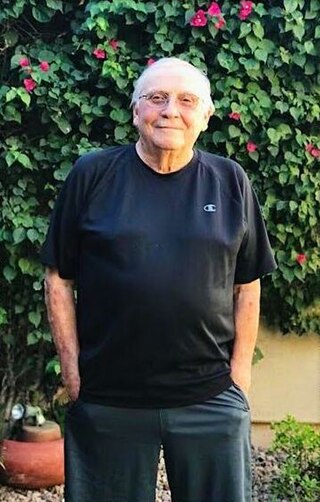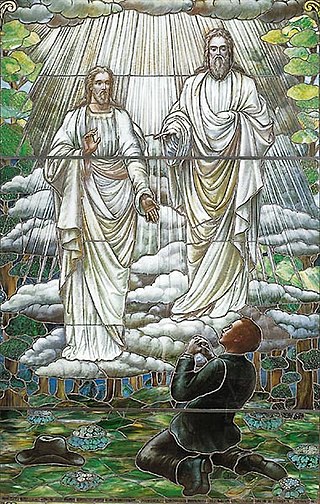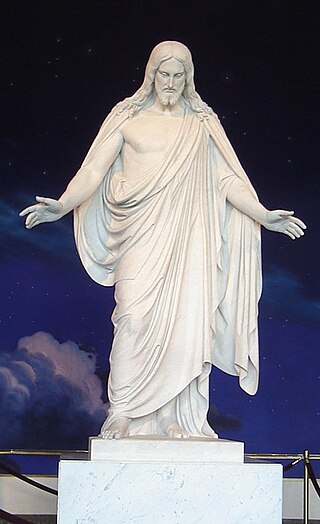
The Church of Jesus Christ of Latter-day Saints, informally known as the LDS Church or Mormon Church, is a restorationist, nontrinitarian Christian denomination that is the largest denomination in the Latter Day Saint movement. The church is headquartered in the United States in Salt Lake City, Utah and has established congregations and built temples worldwide. According to the church, it has over 17 million members and over 72,000 full-time volunteer missionaries. The church was the fourth-largest Christian denomination in the United States as of 2012, and reported over 6.8 million US members as of 2022.

Mormons are a religious and cultural group related to Mormonism, the principal branch of the Latter Day Saint movement started by Joseph Smith in upstate New York during the 1820s. After Smith's death in 1844, the movement split into several groups following different leaders; the majority followed Brigham Young, while smaller groups followed Joseph Smith III, Sidney Rigdon, and James Strang. Most of these smaller groups eventually merged into the Community of Christ, and the term Mormon typically refers to members of the Church of Jesus Christ of Latter-day Saints, as today, this branch is far larger than all the others combined. People who identify as Mormons may also be independently religious, secular, and non-practicing or belong to other denominations. Since 2018, the LDS Church has emphasized a desire for its members be referred to as "members of The Church of Jesus Christ of Latter-day Saints", or more simply as "Latter-day Saints".

Mormonism is the religious tradition and theology of the Latter Day Saint movement of Restorationist Christianity started by Joseph Smith in Western New York in the 1820s and 1830s. As a label, Mormonism has been applied to various aspects of the Latter Day Saint movement, although there has been a recent push from the Church of Jesus Christ of Latter-day Saints to distance themselves from this label. A historian, Sydney E. Ahlstrom, wrote in 1982, "One cannot even be sure, whether [Mormonism] is a sect, a mystery cult, a new religion, a church, a people, a nation, or an American subculture; indeed, at different times and places it is all of these."
Many Wikipedia articles on religious topics are not yet listed on this page. If you cannot find the topic you are interested in on this page, it still may already exist; you can try to find it using the "Search" box. If you find that it exists, you can edit this page to add a link to it.
In Mormonism, the restoration refers to a return of the authentic priesthood power, spiritual gifts, ordinances, living prophets and revelation of the primitive Church of Christ after a long period of apostasy. While in some contexts the term may also refer to the early history of Mormonism, in other contexts the term is used in a way to include the time that has elapsed from the church's earliest beginnings until the present day. Especially in the Church of Jesus Christ of Latter-day Saints "the restoration" is often used also as a term to encompass the corpus of religious messages from its general leaders down to the present.

The Latter Day Saint movement is the collection of independent church groups that trace their origins to a Christian Restorationist movement founded by Joseph Smith in the late 1820s.

The Latter Day Saint movement is a religious movement within Christianity that arose during the Second Great Awakening in the early 19th century and that led to the set of doctrines, practices, and cultures called Mormonism, and to the existence of numerous Latter Day Saint churches. Its history is characterized by intense controversy and persecution in reaction to some of the movement's doctrines and practices and their relationship to mainstream Christianity. The purpose of this article is to give an overview of the different groups, beliefs, and denominations that began with the influence of Joseph Smith.

Anti-Mormonism is discrimination, persecution, hostility, or prejudice directed against the Latter Day Saint movement, particularly the Church of Jesus Christ of Latter-day Saints. The term is often used to describe people or literature that are critical of their adherents, institutions, or beliefs, or involve physical attacks against specific Mormons, or the Latter Day Saint movement as a whole.
Ex-Mormon or post-Mormon refers to a disaffiliate of the Church of Jesus Christ of Latter-day Saints or any of its schismatic breakoffs, collectively called "Mormonism". Ex-Mormons—sometimes referred to as exmo or postmo—may neither believe in nor affiliate with the LDS Church. In contrast, Jack Mormons may believe but do not affiliate; and cultural Mormons may or may not affiliate but do not believe in certain doctrines or practices of the LDS Church. The distinction is important to a large segment of ex-Mormons, many of whom consider their decision to leave as morally compelling and socially risky. According to 2014 Pew data, around 1/3 of adults raised LDS no longer adhere to the faith and in 2008 only 25% of LDS young adults were actively involved. Many ex-Mormons experience troubles with family members who still follow Mormon teachings. Aggregations of ex-Mormons may comprise a social movement.

Dylan Thomas Sprouse is an American actor. He is best known for his role as Zack Martin on the Disney Channel series The Suite Life of Zack & Cody and its spin-off, The Suite Life on Deck, where he starred alongside his twin brother Cole Sprouse. He is an owner of the All-Wise Meadery in Brooklyn, New York.
Various spectrums of beliefs or practice within Mormonism account for categories of Mormons possessing faith or skepticism regarding various doctrines of The Church of Jesus Christ of Latter-day Saints, or pertaining to issues of orthopraxy/heteropraxy, among those identifying as Mormon. People may also partake of Mormon culture to some degree as a result of having been raised in the LDS Church or else having converted and spent a large portion of their life as an active member of the LDS Church. Such "cultural" Mormons may or may not be actively involved with the church. In some cases they may not even be, or have ever been, official members of the church.

John Edward "Ed" Decker is an American counterculture apologist, and evangelist known for his expert studies, books, and public presentations, of the negative aspects of the Church of Jesus Christ of Latter-day Saints and Freemasonry. He is a former member of the LDS Church, and prominent early member of a Christian group for ex-Mormons called Saints Alive in Jesus. His most well-known book is The God Makers: A Shocking Expose of What the Mormon Church Really Believes, co-authored by Dave Hunt.
Latter Day Saints and Mormons have been portrayed in popular media many times. These portrayals often emphasize controversy such as polygamy or myths about the Church of Jesus Christ of Latter-day Saints and other branches of the Latter Day Saint movement.
The God Makers is a book and film highlighting the inner workings and perceived negative aspects of the Church of Jesus Christ of Latter-day Saints. Ed Decker and Dave Hunt co-authored the book and film.

Mormonism and Nicene Christianity have a complex theological, historical, and sociological relationship. Mormons express their doctrines using biblical terminology. They have similar views about the nature of Jesus Christ's atonement, bodily resurrection, and Second Coming as mainstream Christians. Nevertheless, most Mormons do not accept the doctrine of the Trinity as codified in the Nicene Creed of 325 and the Nicene-Constantinopolitan Creed of 381. Although Mormons consider the Protestant Bible to be holy scripture, they do not believe in biblical inerrancy. They have also adopted additional scriptures that they believe to have been divinely revealed to Joseph Smith, including the Book of Mormon, the Doctrine and Covenants, and the Pearl of Great Price. Mormons practice baptism and celebrate the sacrament of the Lord's Supper, but they also participate in other religious rituals. Mormons self-identify as Christians.
Islam and Mormonism have been compared to one another since the earliest origins of the latter in the nineteenth century, sometimes by detractors of one or both religions, but also at least once by Joseph Smith, founder of the Latter Day Saint movement, himself. Smith was also frequently referred to as "the Modern Muhammad" by several publications of the era, notably in the New York Herald, shortly after his assassination in June 1844. This epithet repeated a comparison that had been made from Smith's earliest career, one that was not intended at the time to be complimentary.

The following outline is provided as an overview of and a topical guide to the Church of Jesus Christ of Latter-day Saints.
Below is a series of timelines of LGBT Mormon history consisting of events, publications, and speeches about LGBTQ+ individuals, topics around sexual orientation and gender minorities, and the community of members of Mormonism's largest denomination, the Church of Jesus Christ of Latter-day Saints. Although the historical record is often scarce, evidence points to queer individuals having existed in the Mormon community since its beginnings, and to leaders being against same-sex sexual behavior and gender non-conformity. LDS leadership started to more regularly address topics regarding the LGBT community in public in the late 1950s. Since 1970, the LDS Church has had at least one official publication or speech from a high-ranking leader referencing LGBT topics every year, and a greater number of LGBT Mormon and former Mormon individuals have received media coverage.

The Church of Jesus Christ of Latter-day Saints has a limited presence in the People's Republic of China and is subject to legal restrictions on the Chinese mainland. Mormonism is not one of the five religions officially recognized by the government of China. Although returned overseas Chinese converts and foreign Latter-day Saints who live in China do attend in-country sacrament meetings, Chinese nationals and expatriates do not attend the same meetings, and the LDS Church has directed its non-Chinese members to avoid proselytizing in Mainland China.









